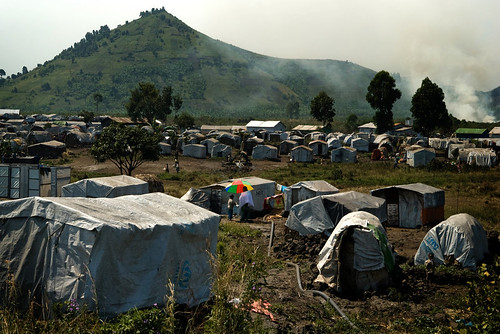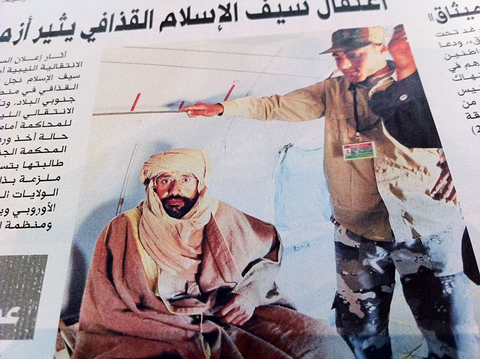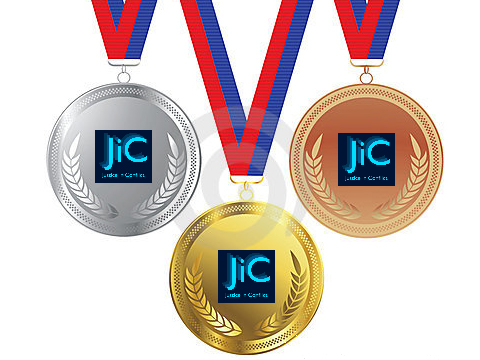Late last week, the Office of Public Counsel for the Defence (OPCD), which has been representing Saif al-Islam Gaddafi at the ICC, filed its official response to Libya’s admissibility challenge at the ICC. The impressive report, a whopping 92-pages long, should be read in its entirety. It includes an in-depth account of the arrest and detention of Melinda Taylor and the ICC4. Kevin Jon Heller at Opinio Juris has covered the most controversial and pertinent bits of the report (see here and here) and has posted a must-read piece on the relevance of the failure to provide Saif with due process in Libya’s admissibility challenge. Here are a few things that I found particularly interesting and important.
Tag: International Criminal Court

The prosecutor of the International Criminal Court, ICC, has asked judges to issue new charges against two alleged warlords in the eastern Democratic Republic of Congo. While experts welcome the idea that rebel militia commanders should be held to account, they are still debating how much of a contribution justice mechanisms can make to protracted peace efforts in the region.
On May 14, the ICC prosecutor, Luis Moreno Ocampo, requested additional charges against Bosco Ntaganda relating to war crimes and crimes against humanity, including acts of murder, persecution and sexual slavery carried out between September 2002 and September 2003 in the Ituri region of eastern DRC.
Ntaganda, the military commander of the National Congress for Defence of the People or CNDP, was first charged by the ICC in 2006 for using child soldiers under the age of 15 to fight, but he has remained at large since the charges were made public in April 2008.

A recent thought-provoking and provocative op-ed in the New York Times has presented a serious challenge to those who view drones as nothing more than the evil extensions of secretive warfare. According to Andrew Stobo Sniderman and Mark Hanis, “[i]t’s time we used the revolution in military affairs to serve human rights advocacy.”

It was fitting that news and commentary on justice in Libya was thoroughly confusing today. The conflict in Libya and the post-Gaddafi era have been rife with contradictory storylines: Saif al-Islam Gaddafi was captured. Wait, he’s touring Tripoli! Abdullah al-Senussi has been detained in the south of the country, but we haven’t heard or seen from him since (he is almost certainly not in Libya). International Criminal Court Prosecutor Luis Moreno-Ocampo says Libya can try Saif and Senussi but the Pre-Trial Chamber says ‘hold your horses!’
In short, the narratives emerging from Libya as they pertain to the ICC have been anything but coherent. Even for the most keen observers and commentators, it has been tough to keep track of and distinguish between what was information and what was mis-information.

Over the course of the past few months, we have regularly featured posts from our friends at Justice in Conflict (JiC). Mark Kersten and Patrick Wegner, the authors of the blog, write about the competing conceptions and ideas of justice and the challenges of pursuing justice in conflict. Expectations and demands for international justice have risen dramatically since the end of the Cold War, but – perhaps with the exception of 1945-46 – there has never been the same level of interest and scrutiny to the work of international criminal justice as in 2011. As Mark writes, “We will almost surely still be talking about 2011 in 2031.”
To reflect these developments, JiC has inaugurated the ‘International Criminal Justice Awards.’ The 2011 awards, listed below, represent the best and the worst in international justice from the last year. You can read the full version of Mark’s blog article here.
Biggest Catch: It was a close call, but the prize for the biggest catch in international criminal justice in 2011 goes to Laurent Gbagbo, narrowly edging out Ratko Mladic. Gbagbo is the first former head of state to be in the custody of the ICC, marking a significant political coup for the Court and (hopefully) justice in Ivory Coast. Quite simply, in terms of victories for international criminal justice, Gbagbo is a head (of state) above the rest.
